Vitamin K is good for proper blood clotting, so you need to ensure that you are getting enough vitamin K in your daily diet. The main symptom of a vitamin K deficiency is excessive bleeding, especially in mild injuries or when it starts occurring in the nose or gums. Your body can store this vitamin in the liver as well as fat tissues, making vitamin deficiency rare. Now is the good time for you to discover the section nutrients of our site and the list of good food sources of vitamin K.
List Of Food Sources Of Vitamin K – 45 Best Foods:
1. Sources of Vitamin K – Kale

A cup of chopped kale contains more than 5 times the daily recommended vitamin K requirement, which is essential to healthy bones and healing wounds. Besides, kale is rich in protein, fiber, iron, calcium, vitamins A and C as well as omega-3 fatty acids.
This is actually one of the best sources of vitamin K that you should know and try to add it to your daily diet for good.
Learn More: Top 14 Best Minerals And Vitamins For Children Growth
2. Dark Green Leafy Vegetables
Dark green leafy vegetables are very rich in vitamin K and calcium. Kale is the best source of vitamin K as I mentioned earlier. Dandelion greens come second on the list. And other leafy greens include broccoli, collards, cress, spinach, turnip greens, Swiss chard, mustard greens, radicchio, lettuce and beet greens. You can enjoy these delicious leafy greens in a salad or steamed vegetables in order to boost your level of vitamin K.
Read More: Top 18 Health And Nutritional Benefits Of Vegetables
3. Broccoli
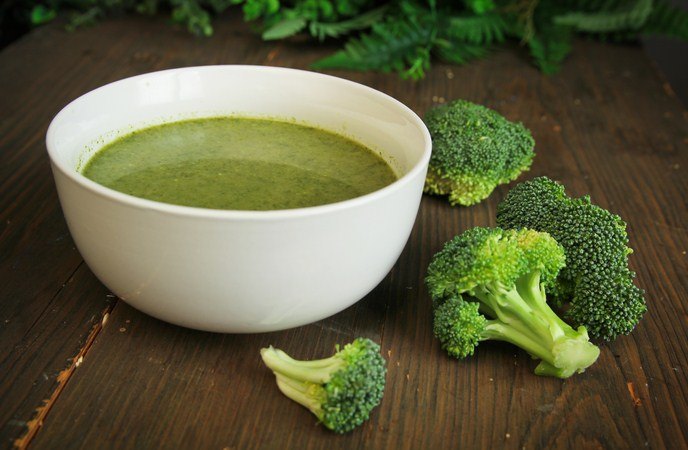
This green veggie coming from the family of cabbage is one of the most nutrient-rich foods. It is also rich in vitamin K, vitamin C, zinc, calcium, potassium and low in calories. It provides many health benefits such as enhancing the immune system, cancer prevention, cardiovascular health, bone health as well as prevention of birth defects. You can prepare broccoli soup or steamed broccoli to make use of these health benefits. Just ½ cup of broccoli provides over the recommended daily intake of vitamin K.
Read More: Amazing Health Benefits Of Spinach
4. Cabbage
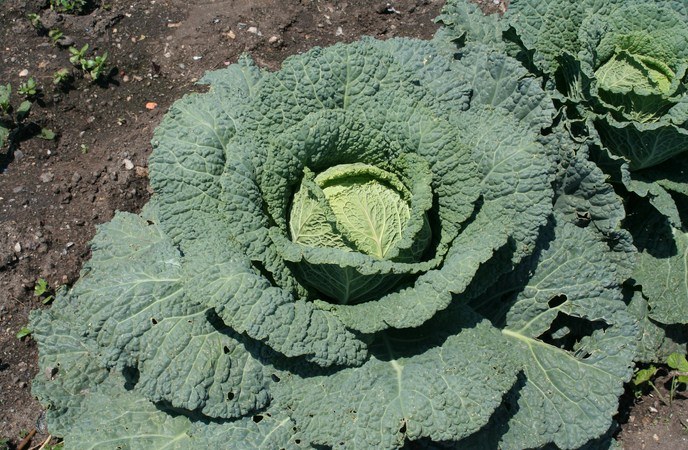
Cabbage is known as one of the food sources of vitamin K that you should know for good. This leafy veggie is nutritious and it is also a great source of vitamin K. It offers 95% DV of vitamin K in just 100g serving. Addition to this, cabbage is also a great source of other essential vitamins such as vitamin B1, B5, B6 and vitamin C. You can enjoy raw cabbage in salads or you can also add pickled cabbage in fillings and rolls along with other veggies.
5. Chili, Curry, Paprika, And Cayenne Powder
Chili powder is widely-used in India for flavoring soups, stews as well as other recipes. However, few of us know that this food is a great source of vitamin K. In addition, it contains a high content of vitamin A, C and E, phosphorus, potassium, zinc, calcium, selenium and manganese. Some other spices are also very rich in vitamin K, such as curry, paprika and cayenne powder.
Discover: List Of 15 Best Healthy Fish Recipes For Dinner
6. Sources Of Vitamin K – Carrots
Carrots are one of the best foods that you should not skip out. Being rich in beta-carotene, carrots are good for eye health. Also, they are a great source of vitamin K when a medium-sized carrot offers 10% DV of vitamin K. Moreover, carrots are rich in calcium, iron, vitamins A and C. Being rich in antioxidants, carrots offer a protection from cardiovascular disease and cancer.
Learn More: Top 13 Health And Nutritional Benefits Of Pumpkin
7. Celery
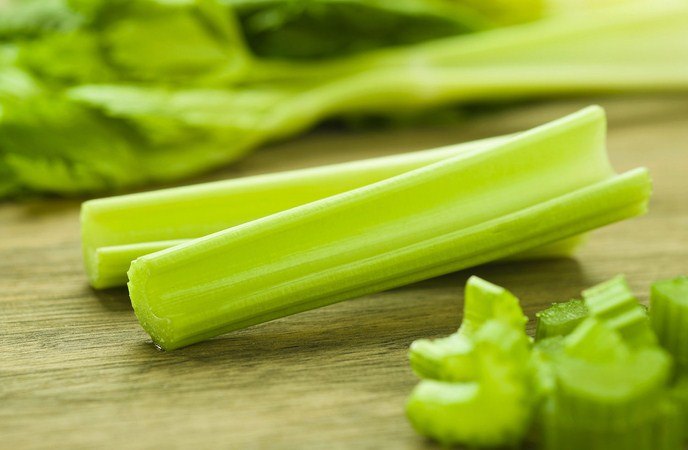
Celery is a flavorful veggie that you can find easy to prepare when you are trying to look for a healthy snack. It is known for its rich source of vitamins, antioxidants and minerals such as folic acid, calcium and potassium. Also, it is a great source of vitamin K with 100g serving providing 37%DV of vitamin K. Besides, it is rich in potassium, folate vitamin C and vitamin A.
This is one of the best sources of vitamin K that you should consider adding to your daily diet to meet your daily requirement of vitamin K.
8. Asparagus
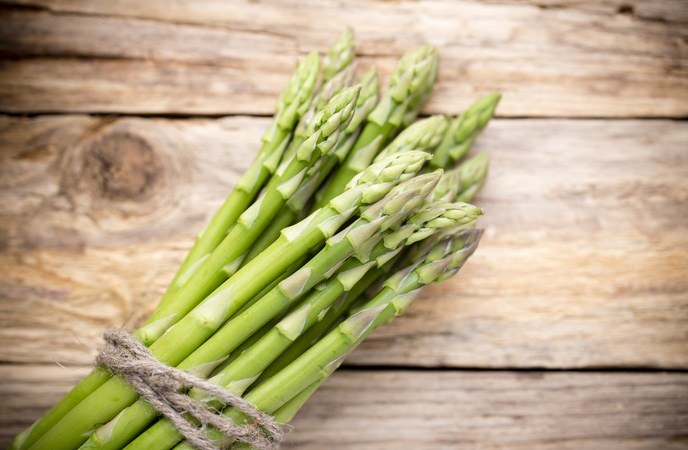
Being rich in nutrients, asparagus is known for its disease and age- fighting properties. The best way for you to reap its health benefits is by eating it steamed. A 100g serving of this vegetable offers 100% DV of vitamin K. Also, it is high in other nutrients such as fiber, vitamins A, C and E, folate and chromium.
9. Pickled Cucumber
In case you love pickles, you have another reason to enjoy pickled cucumber. It is a good source of vitamin K when a 100g serving of pickled cucumber offers 96% DV of this vitamin. To get the best results and the abundant vitamin K amounts, it is advised to consume the low-sodium variety of pickled cucumber.
10. Brussels Sprouts
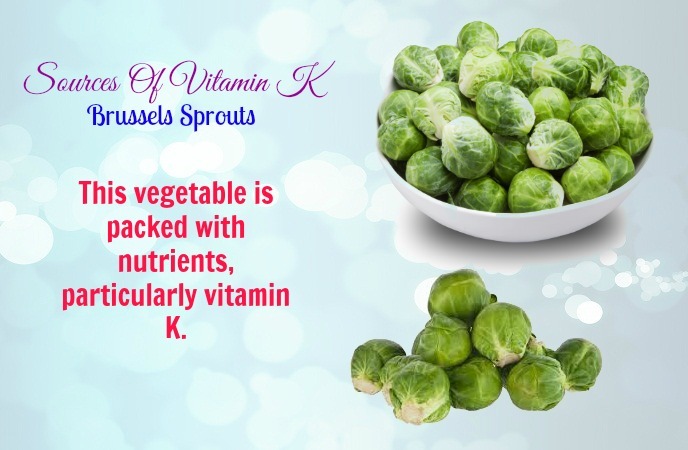
This vegetable is packed with nutrients, particularly vitamin K. A 100g serving of Brussels sprouts offers 242% DV of vitamin K and a single Brussels sprouts offers 42% DV of this vitamin. Also, they are rich in selenium, which can help reduce the risk of developing some certain types of cancer. They are also good for digestive system and contain cholesterol-lowering properties. Moreover, enjoying Brussels sprouts is a good way to enhance your levels of vitamin K and other nutrients such as vitamins A and C, magnesium, copper, iron, phosphorus, folate, potassium, manganese and dietary fiber. So, you should add steamed Brussels sprouts to your meals as a side dish.
11. Spring Onions
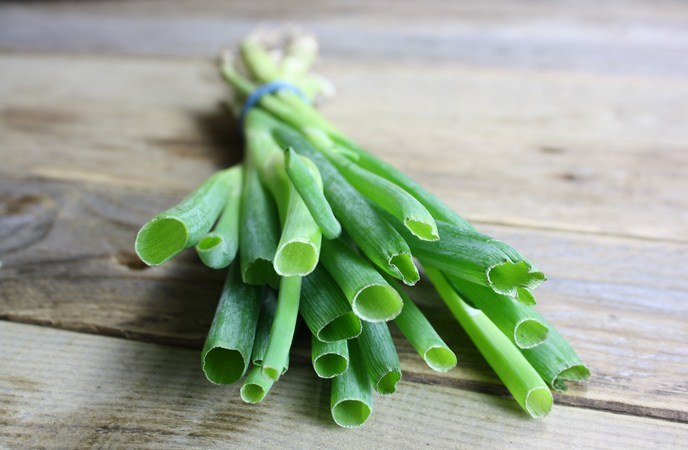
The best sources of vitamin K must include spring onions. Spring onions are also a great source of vitamin K, offering 259% DV of vitamin K in a 100g of spring onions serving. Also, they are rich in B-complex vitamins such as folic acid, pyridoxine, niacin, riboflavin and thiamine and minerals such as calcium, protein, fiber, manganese, copper and iron. You can incorporate them in your stews and soups or use them in wraps and salads.
12. Sun Dried Tomatoes
Sun dried tomatoes are ripe tomatoes that lose almost all of their water content by being dried in the sun. These tomatoes are a great source of vitamin K with 100g serving offering 54% DV of vitamin K. In addition, they are a good source of vitamin A, C, lycopene, calcium and iron. You can use them in some recipes such as sauces, salads, sandwiches, pasta dishes and pizza to increase your level of vitamin K and impart flavor.
13. Prunes
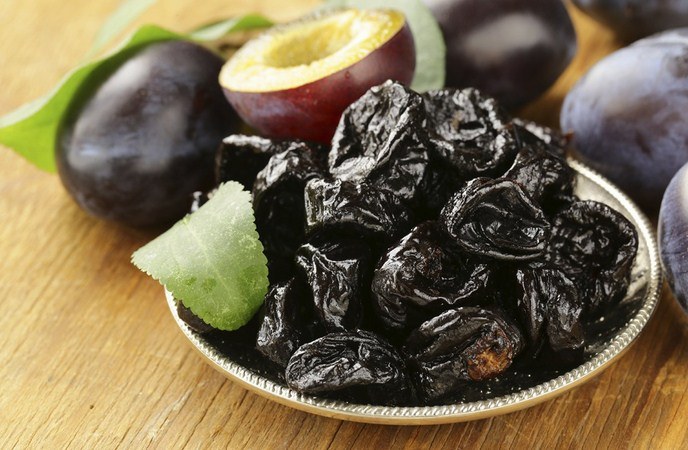
Being packed with nutrients such as iron, fiber and zinc, they are known to be good for your health. Also, they are great sources of vitamin K with 100g serving offering 74% DV of vitamin K. They can be used as healthy snacks to fulfill your need of vitamin K as well as other nutrients.
In fact, prunes are one of the food sources of vitamin K that you should not skip out when you are trying to take in vitamin K from diet,
14. Soybean Oil
Soybeans are well-known for their high amounts of protein. Also, soybean oil is a good source of vitamin K with 100g serving offering 230% DV of vitamin K. Thus, you can try using soybean oil for cooking.
15. Sources Of Vitamin K – Ground Cloves
Ground cloves are used in both savory and sweet recipes. They are a good source of vitamin K with 1 tbsp. of 7 g offering 12% DV of vitamin K. You can easily add them to your diet by using cloves as an ingredient in your favorite recipes.
This is a good choice when you are trying o look for best sources of vitamin K, so you should consider adding more of the ground cloves to your diet as soon as possible.
16. Okra
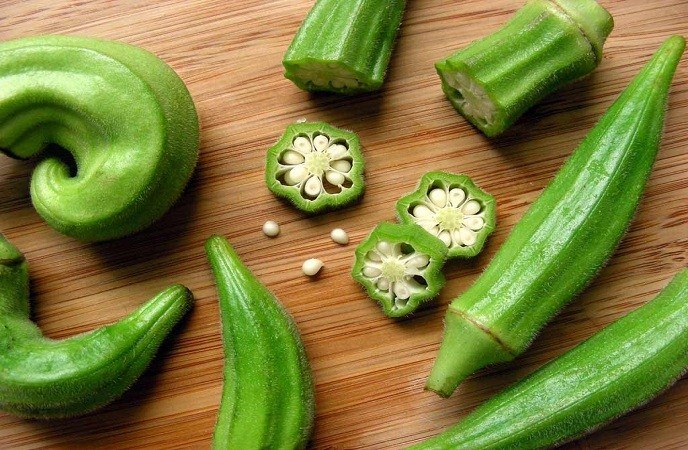
A ½ cup of sliced okra offers 34 micrograms of vitamin K or 43% of the recommended requirement for the day. In case you are not sure how to use more of this vegetable in your diet, consider serving it with corn, tomato soup, rice or shrimp.
17. Dried Sage
Many people use these herbs to spice up their cooking while not everyone knows about their health benefits. Dried sage is a good source of vitamin K with 1 tbsp. of dried sage offering 43% of the daily recommended requirement. Add more dried sage to your diet for added health benefits.
18. Spinach
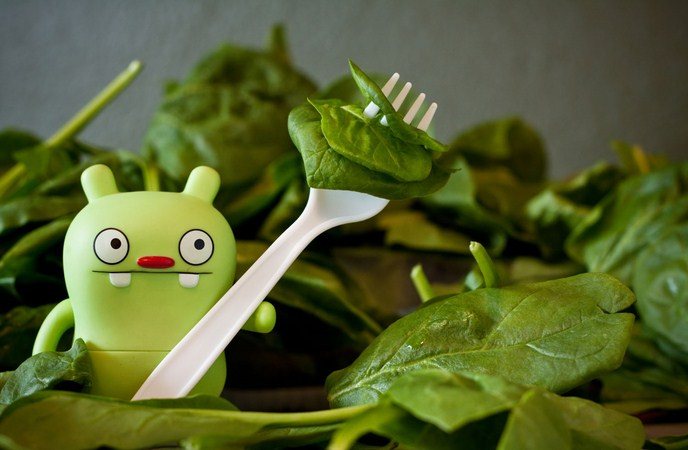
One of the best sources of vitamin K you can add to your daily diet must include spinach. Whether cooked or raw, spinach is a good source of some essential vitamins, minerals and antioxidants such as vitamin C, vitamin K, iron and calcium. In case you are not sure how to usespinach in your diet, you can use it as the base for your salads, sauté it with garlic and olive oil, use it as a topping on the pizza, or cook it in your pasta sauce.
19. Raspberries, Blackberries And Blueberries
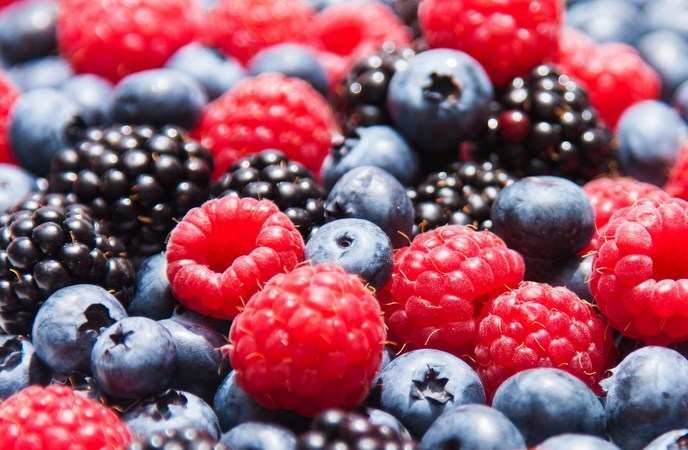
Many types of berries are packed with minerals such as fiber, potassium, zinc, iron, manganese and copper and vitamins such as vitamin C and vitamin K. This makes them a good part of your daily diet. So, enjoy a berry-packed fruit salad or smoothie to give your body and mind a nutritional boost.
20. Swiss Chard
Swiss chard is known as one of the food sources of vitamin K that you should not skip out. The amazing colors of the stems of Swiss chard make it a good veggie to serve as a wonderful side dish, especially if you want to impress your guests. You can steam it or smother it in butter and garlic or also works well when chopped and then added to soups.
21. Dandelion Greens
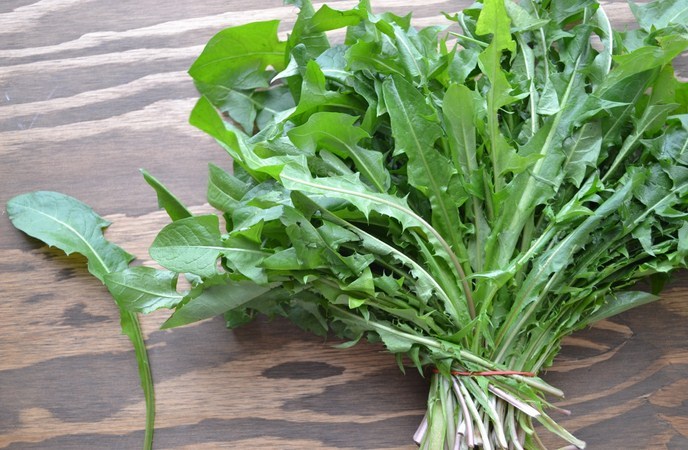
They can be enjoyed both raw and cooked. Raw dandelion greens make a simple-to-process, yet delicious dandelion salad with tomato, red onion and seasoning. Whereas, cooked dandelion greens can be added to your soups, or served as a side dish along with roast chicken or steamed fish and also mixed with garlic in order to make a puree for your pasta.
22. Sources Of Vitamin K – Collard Greens
Collard greens may have a bitter flavor that works well with sweet main dishes such as sausage pie or beef cooked in barbeque sauce. These green can be served with onion and bacon for a good side dish to your dinner or added to your soups.
Do you want to know other food sources of vitamin K? Continue reading this entire article and then add more of these foods to your diet!
23. Mustard Greens
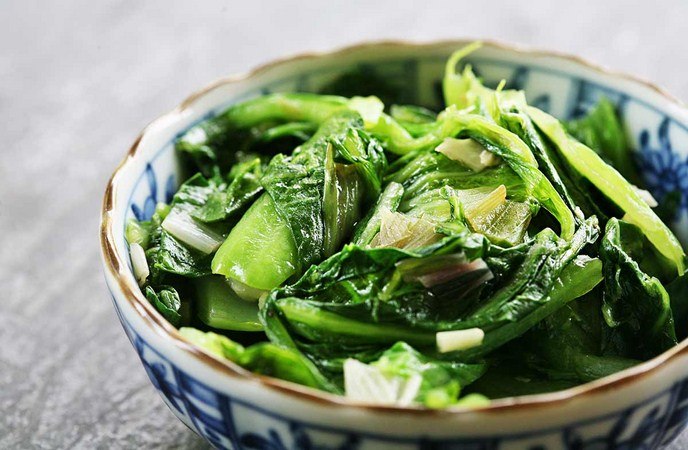
The peppery flavor of mustard greens makes these greens good for frying off with picy meats. These greens can also be used to create pesto. A single serving of these greens has 348% of the recommended vitamin K intake per day.
They are one of the best food sourcs of vitamin K that you should not miss out when you are trying to take in vitamin K through diet.
24. Watercress
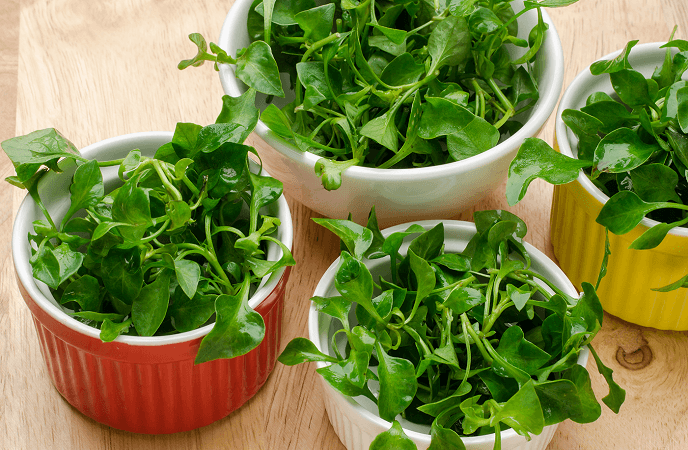
The peppery flavor of this food makes it a good choice for making a simply delicious soup. This flavor also works well in sandwiches and wraps with ingredients like falafels or roast beef, or works as a base for a fresh besto. A cup serving of watercress contains over 100% of your daily requirement of vitamin K.
25. Endive
A ½ cup of endive contains as much as 72% of your recommended intake of vitamin K per day, making it a veggie worth you should add to your daily diet. The bitter flavor of endive works well with apple in coleslaw that you make at home. Also, it can be served with chicken stock, lemon and sugar in order to make a delicious side dish.
26. Rapini
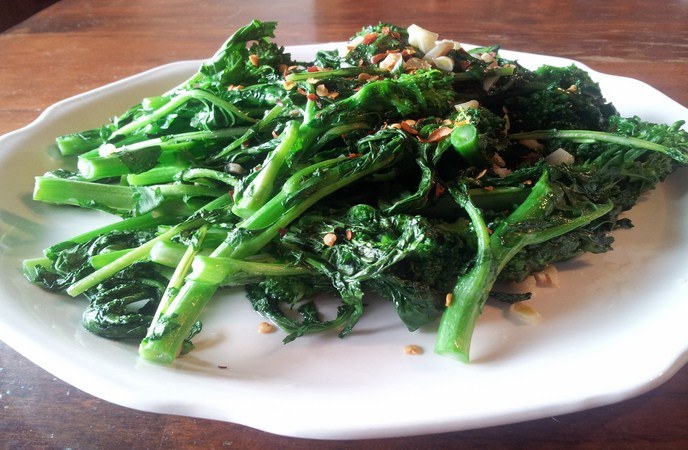
Rapini is a bitter-tasting vegetable that you can gently sauté it in olive oil, garlic and some oregano for a delicious dish that can be served with parmesan. A cup serving of rapini will offer over 100% of the recommended requirement of vitamin K per day.
This is among one of the best food sources of vitamin K that you should not look down, yet try to add to your diet for good.
27. Parsnips
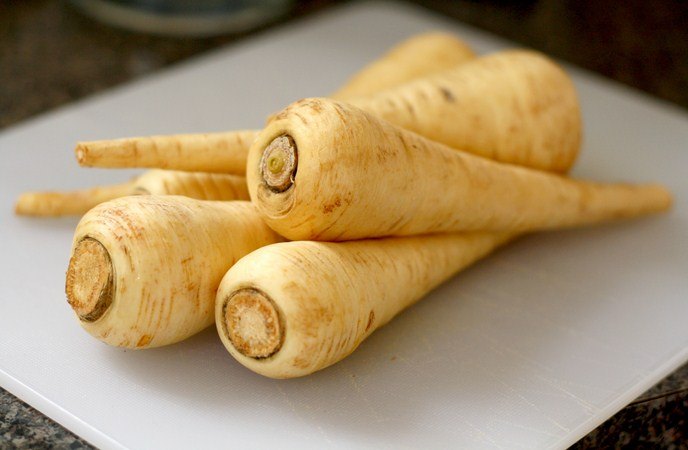
One of the best ways to enjoy parsnips you can easily make at home is to roast them until burnt. This may help to boost their naturally sweet, but sour flavor. Also,, parsnips can be added to root veggie stews and served as an alternative to swede.
28. Cauliflower
One of the best sources of vitamin K that you should know must include cauliflower. Using cauliflower to make a base for pizza or mash in lieu of wheat and potatoes is a good way for you to meet the recommended daily intake of vitamin K. Cauliflower curry is delicious, so you should not skip out it.
29. Green Beans
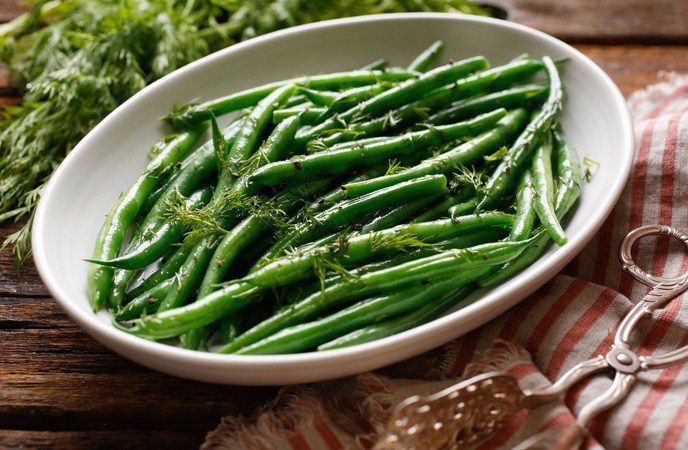
They can be simply steamed to serve as a side dish or they can be fried off with garlic, bacon and basil to serve as a side dish to chicken or duck. A cup serving of green beans has about 20% of your recommended daily intake of vitamin K.
30. Artichokes
One of the best ways to enjoy artichokes is to consume it straight from the jar. This way, they may help you have a healthful meal within minutes such as artichoke pasta or an omelet made with other veggies.
This is one of the food sources of vitamin K that you should know and consider adding them to your diet as soon as possible.
31. Sources Of Vitamin K – Scallions
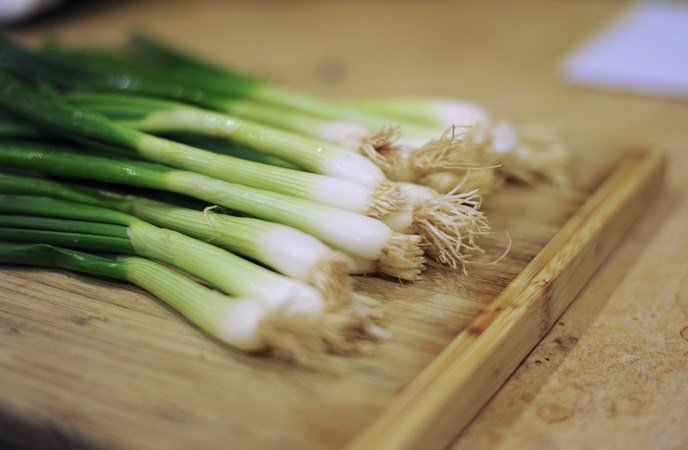
Scallions are actually one of the food sources of vitamin K that you should try to consume, especially if you are trying to deal with Vitamin K -deficient symptoms.
Scallions are a good food source of vitamin K, offering as much as 259% of your daily requirement per day per one cup serving. Scallions can be added to salads and soups for an onion flavor. Also, they taste good in creamy chicken and stir fries and coconut curry.
32. Lettuce
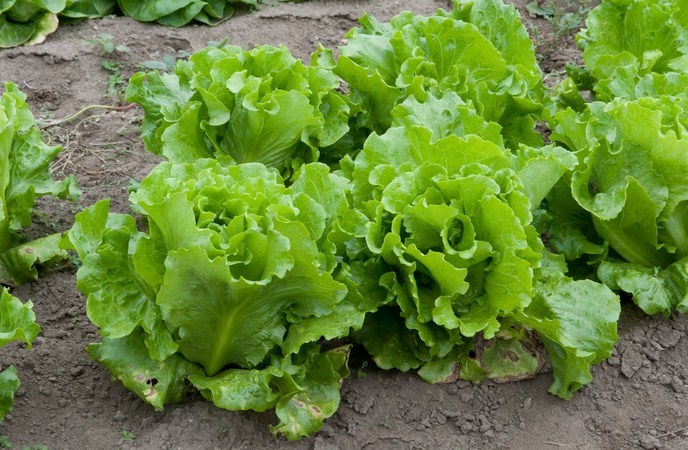
There is a variety of lettuce available for you to choose from, each of them has a distinct flavor and nutrient profile. Green lettuce are especially good for adding to wraps or green smoothies that have red meat while white lettuce are good for green side salads.
33. Arugula
It is a flavorful salad veggie, which may tastes good in sandwiches and wraps. It also works well as an alternative to watercress in your soups. Arugula also makes a good pesto to enjoy with chicken. A ½ cup of arugula has around 14% of your recommended requirement of vitamin K per day.
34. Chili Peppers
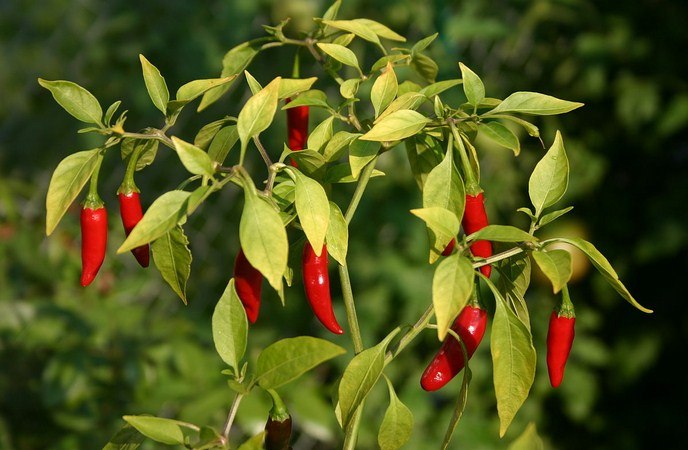
Dried chilli peppers are a good stand-in for fresh chili peppers. They can be used to make powder and mixed with other oils and herbs to make a marinade that may be applied into the skin of chicken and beef. Also, you can add a kick to your smoothies by adding chilli pepper.
35. Bell Peppers
The flavor of bell peppers can be appreciated in ratatouille. Another good way to use bell peppers is to add them into salads such as green salad, pasta salad or rice salad. On average, bell peppers have between 9-14% of the recommended daily intake of vitamin K.
This is on the list of best sources of vitamin K that you should try to add them to your daily diet if you are facing up symptoms that are related to vitamin K deficiency.
36. Leeks
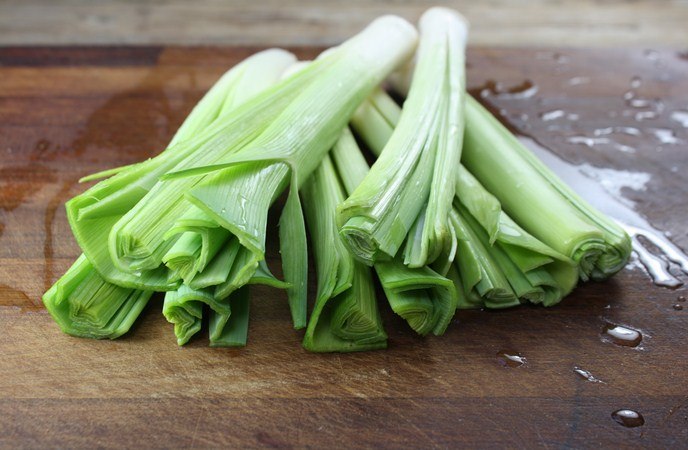
A single cup of leeks can offer over 50% of the recommended daily requirement of vitamin K. You can enjoy these onion-flavored veggies in leek and potato soups or add it to bolognaise and pasta sauces or slice raw leeks into green salads. Also, leeks can be added to cheesy bread dough in order to make a delicious addition to soups.
37. Fennel
The aniseed flavor of fennel makes it a good addition to your tomato-based roast veggie dishes. Also, fennel works well when it is sliced into your green salad. Besides, chewing on fennel seeds can help you have a naturally fresh breath, making them a good choice after dinner.
38. Bok Choy
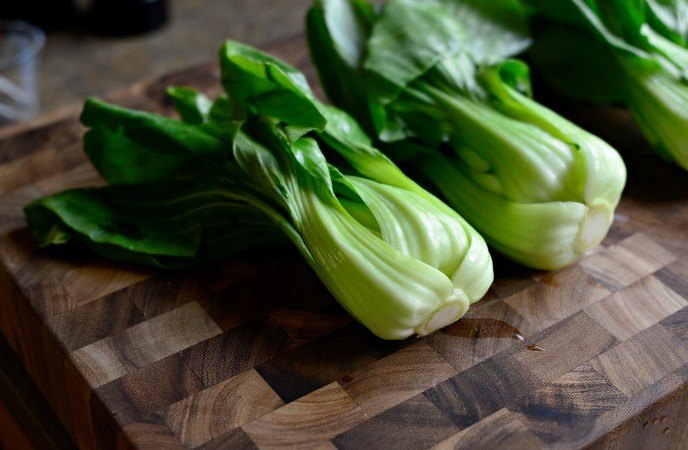
One of the food sources of vitamin K that you should consider adding to your diet must include bok choy. Bok choy can be used to add your stir fries or chopped and added to soups before serving. The leaves can be served with cheese, meats and veggies to serve as a gluten-free dish.
39. Radicchio
The vibrant red color of radicchio makes this food have a gorgeous-looking and a delicious-tasting salad. Radicchio can be sautéed with basil and garlic, and then tossed through pasta for a simple meal. A serving of radicchio has about 128% of the recommended intake of vitamin K per day.
40. Sources Of Vitamin K – Avocados
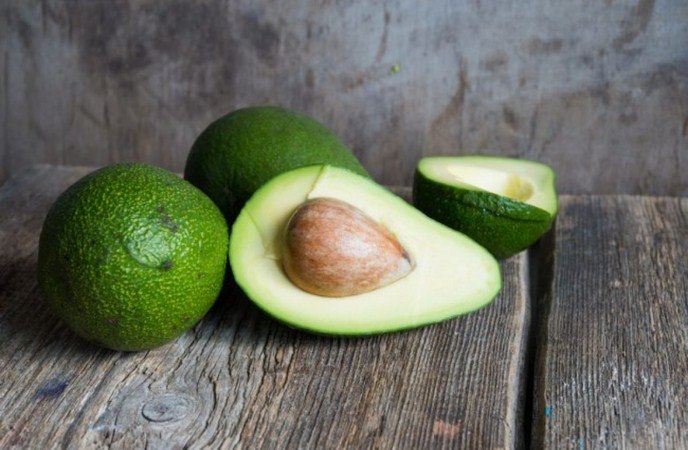
They are the main ingredient for guacamole and they are also served as a good alternative to mayonnaise in wraps and sandwiches. Moreover, they can be delicious to enjoy in other ways. Just like pepper varieties, avocados can be served with vegetables and cheese and then enjoyed for lunch. Also, they can be mixed with tahini for a salad dressing.
Continue reading this entire article to discover other food sources of vitamin K and then try to add more of them to your diet for good.
41. Pomegranates
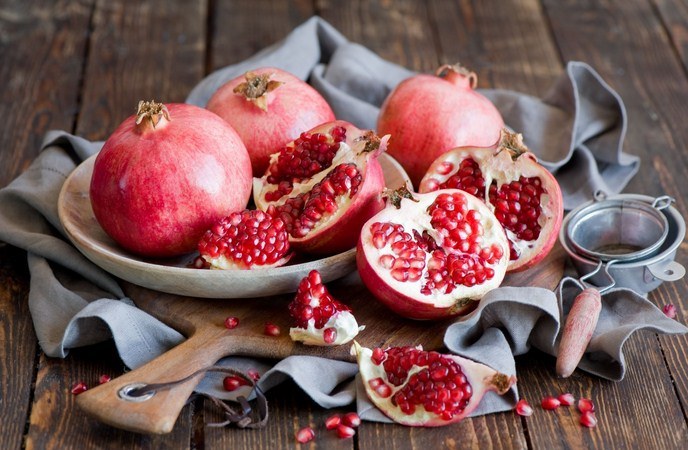
The pomegranate seeds can be scattered over a green salad, offering small amounts of intense flavor. Also, they can be stirred in yogurt for a breakfast or post-workout snack. A single pomegranate has about 58% of your recommended daily intake of vitamin K.
42. Grapes
Frozen grapes are a good food for children in the summer. You can add them to homemade smoothies and juices for a quick chilled effect. Addition to this, grapes are also a great source of vitamin K, offering 1/3 of the recommended daily intake of vitamin K per one cup serving.
43. Pine Nuts
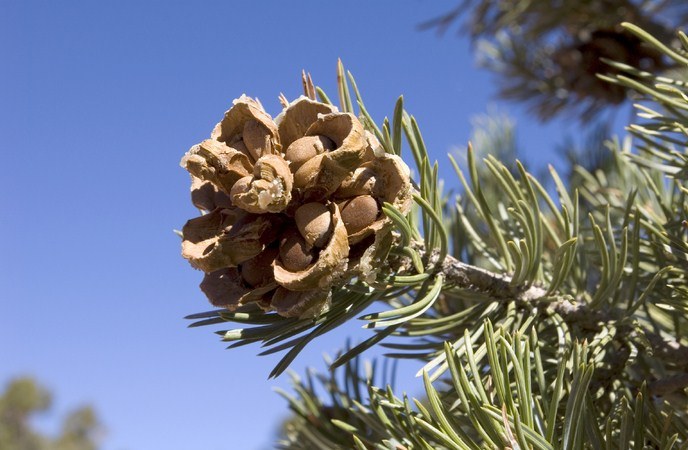
Widely used to make pesto, these nuts are good flaked through buttery rice and they also work well when mixed into soups or added to burgers or nut leaves. A cup serving of pine nuts has 91% of your recommended daily intake of vitamin K.
44. Parsley
Despite its humble appearance and flavor, parsley is a good source of nutrients, including vitamin K. A single cup of parsley has more than 1200% of the recommended daily intake of vitamin K. Due to its mild flavor, parsley can be used in smoothies and added to pasta and soups and even sandwiches in lieu of lettuce.
45. Sources Of Vitamin K – Animal Products And Seafood
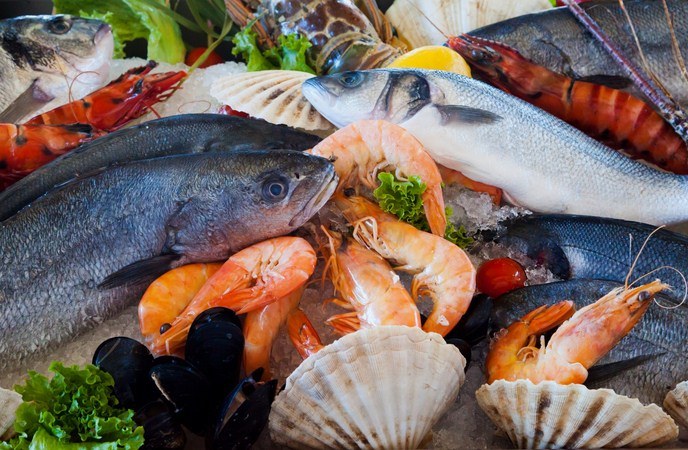
Animal products and seafood have very small amounts of vitamin K. Typically, they offer no more than 5 micrograms of vitamin K per serving. Eggs, milk, cheese, pork, beef, turkey, chicken, tuna, shrimp and mackerel all have small amounts of vitamin K. Shellfish, clams and anchovies have small amounts of this vitamin as well.
It is a fat-soluble vitamin naturally found in many foods. The best ways for you to get the daily vitamin K requirement is by consuming more of these foods as I mentioned earlier. You need to add Vitamin K -rich foods to your diet to deal with the health problems associated with vitamin K deficiency. In fact, these foods also contain a variety of essential vitamins and nutrients and they are also delicious, so readers of Nutrition Kit should not skip out them. Also, you do not take vitamin K supplements unless your doctor prescribes. Feel free to share your thoughts about best sources of vitamin K with us in the comment section below.









